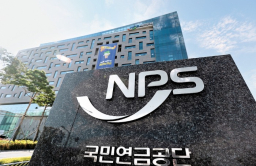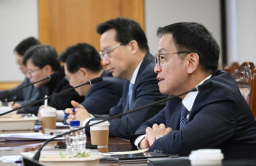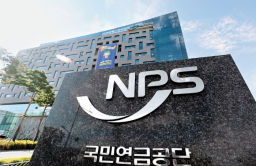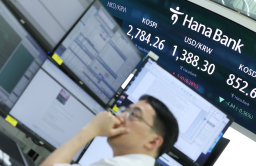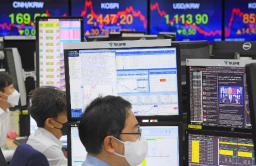-
KOSPI 2697.67 -22.97 -0.84%
-
KOSDAQ 734.35 -1.94 -0.26%
-
KOSPI200 359.62 -3.46 -0.95%
-
USD/KRW 1381 -7.00 0.51%
South Korea expands foreign banks' access to forex market
Foreign exchange
South Korea expands foreign banks' access to forex market
Commerzbank, Toronto-Dominion Bank, Natixis and Northern Trust are preparing to participate in Korean interbank FX market
By
Jan 03, 2025 (Gmt+09:00)
2
Min read
News+

An increasing number of foreign banks without a physical presence in South Korea are gearing up to offer dollar-won conversion services to non-Korean residents.
This year, the country will broaden the range of overseas-based financial institutions' foreign exchange (forex) services beyond dollar-won conversion for non-resident stock and bond investors.
The move comes as Korea is poised to join the FTSE World Government Bond Index, or WGBI, in November this year amid the sharp decline in the won following President Yoon Suk Yeol's impeachment last month.
Germany’s Commerzbank, Canada’s Toronto-Dominion Bank, France's Natixis and US-based Northern Trust are awaiting approval to partake in the domestic interbank forex market, according to the Ministry of Economy and Trade on Friday.
They either have no domestic presence or have withdrawn from Korea, said a financial ministry official. The four banks will join 40 other registered foreign institutions (RFIs), including some Taiwanese banks.
RFIs are authorized to trade the won on the spot market and engage in currency swaps in the country's interbank forex market.
They will now be permitted to exchange foreign currencies into won for Korean exporters transferring foreign currencies back to home.
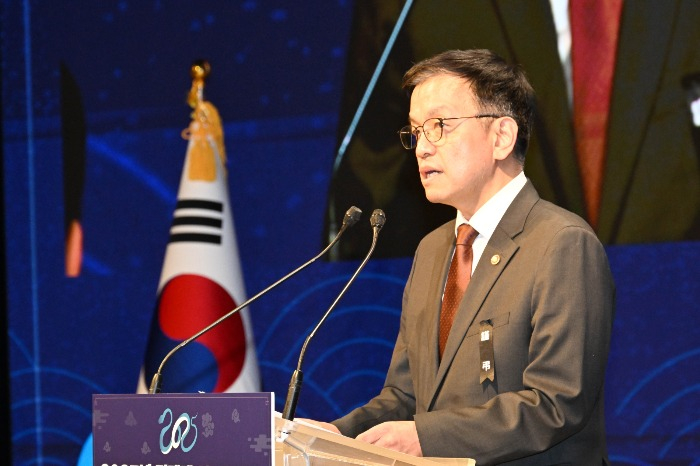
Korea expects inflows of $66 billion-$77 billion worth of foreign funds into domestic financial markets after it is admitted into the WGBI.
The WGBI is one of the world’s four major benchmark indices alongside those of S&P, Dow Jones and MSCI.
About $3 trillion in funds globally is estimated to track the WGBI, which includes government bonds from more than 20 countries including the US, the UK, Canada and Japan.
As new RFIs join the domestic forex market, the government expects the volatility of the Korean won to ease. Demand for the Korean currency could help the government sell treasury bonds at a lower coupon rate than before.
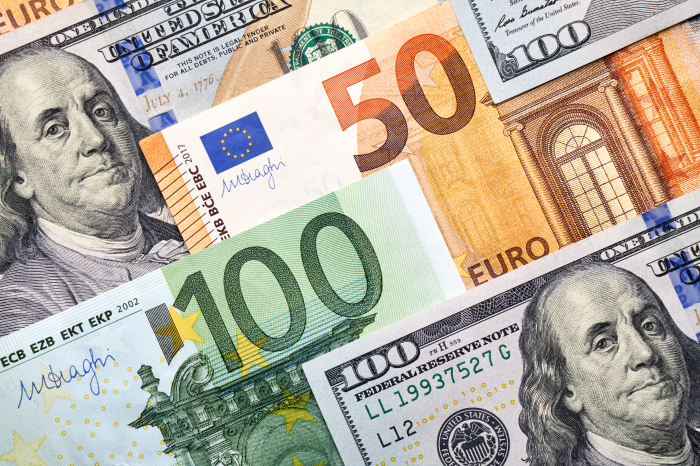
Over the past two years, Korea has been loosening its forex regulations as part of efforts to join the WGBI and the MSCI Developed Markets Index.
In October 2023, the government extended the operating hours of the domestic forex market, while allowing foreign currency dealers to directly participate in the Korean won transaction system.
But it has yet to be upgraded to the developed market index by MSCI.
Over the longer term, Korea is considering allowing non-residents to directly buy and sell Korean stocks without opening an account at a Korea-based bank or brokerage.
Currently, non-residents without a bank or brokerage account in Korea can trade Korean bonds through the International Central Securities Depositories (ICSDs).
Write to Kwang-Sik Lee at bumeran@hankyung.com
Yeonhee Kim edited this article.
More To Read
-
Jan 03, 2025 (Gmt+09:00)
-
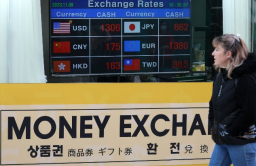 Foreign exchangeGlobal investment banks see Korean won staying weak in 2025
Foreign exchangeGlobal investment banks see Korean won staying weak in 2025Dec 31, 2024 (Gmt+09:00)
-
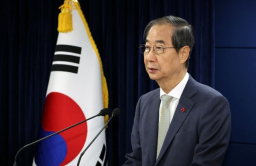 Business & PoliticsSouth Korea’s Acting President Han impeached; Stocks, won plummet
Business & PoliticsSouth Korea’s Acting President Han impeached; Stocks, won plummetDec 27, 2024 (Gmt+09:00)
-
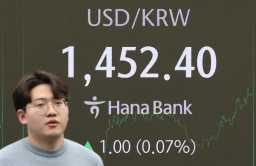 Foreign exchangeKorea to relax FX rules by December to boost dollar selling
Foreign exchangeKorea to relax FX rules by December to boost dollar sellingDec 23, 2024 (Gmt+09:00)
-
Dec 20, 2024 (Gmt+09:00)
-
Dec 16, 2024 (Gmt+09:00)
-
Nov 24, 2024 (Gmt+09:00)
-
 Sovereign bondsKorea to join FTSE Rusell bond index to attract $66 bn inflows
Sovereign bondsKorea to join FTSE Rusell bond index to attract $66 bn inflowsOct 09, 2024 (Gmt+09:00)
-
Jun 21, 2024 (Gmt+09:00)
-
Sep 25, 2023 (Gmt+09:00)
-
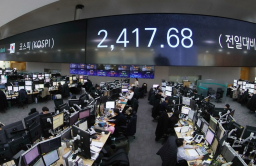 Korean stock marketS.Korea not ready for developed market status: MSCI
Korean stock marketS.Korea not ready for developed market status: MSCIJun 09, 2023 (Gmt+09:00)


